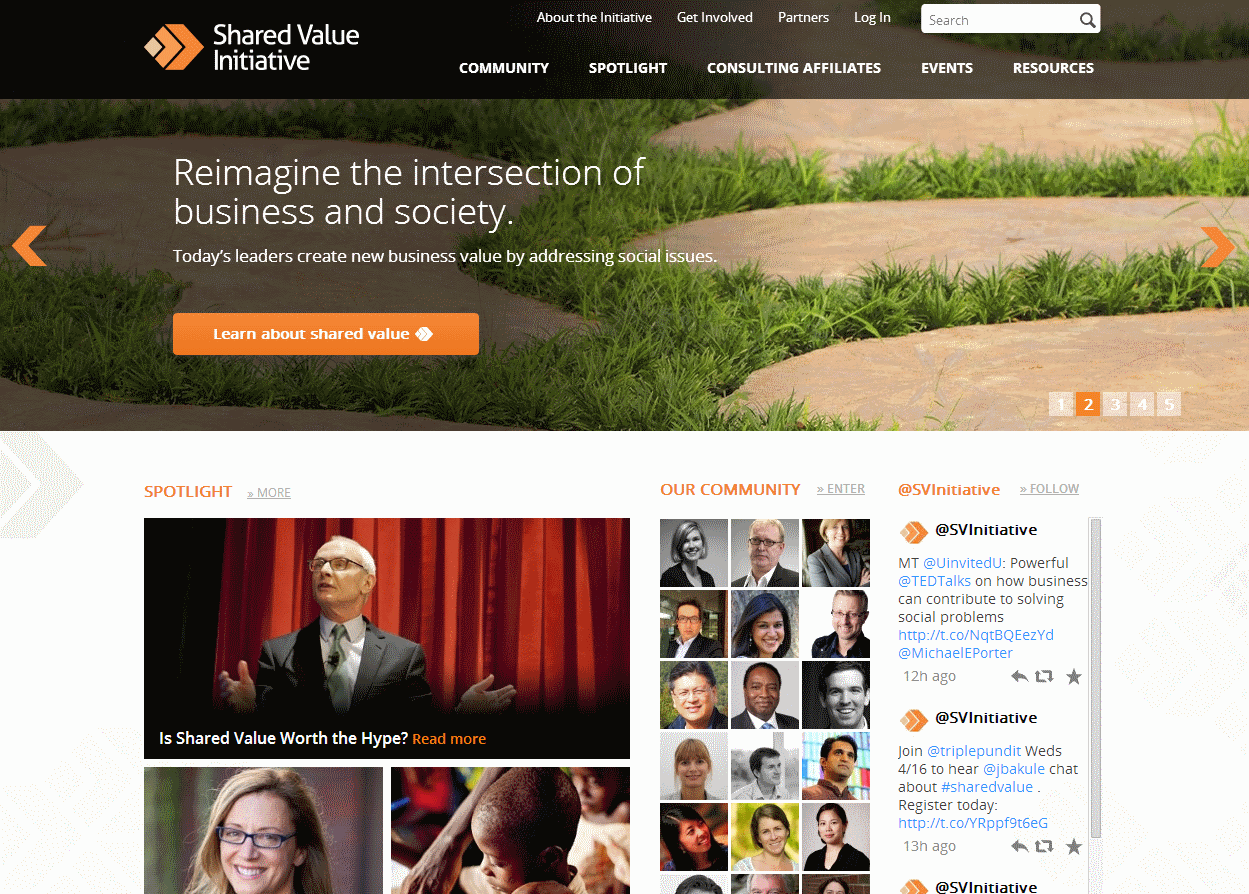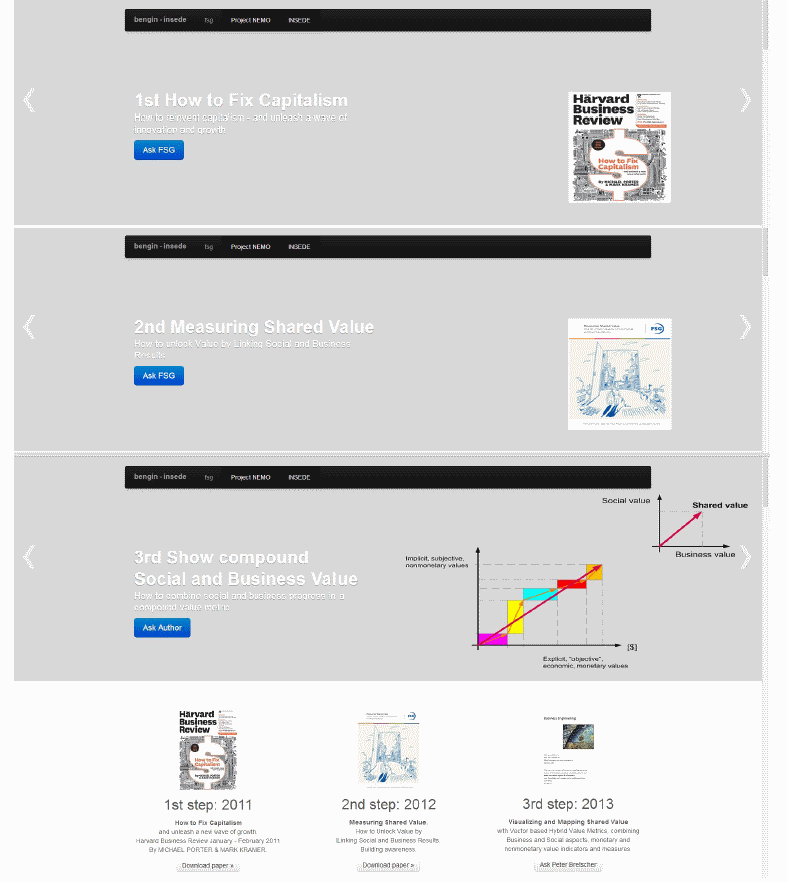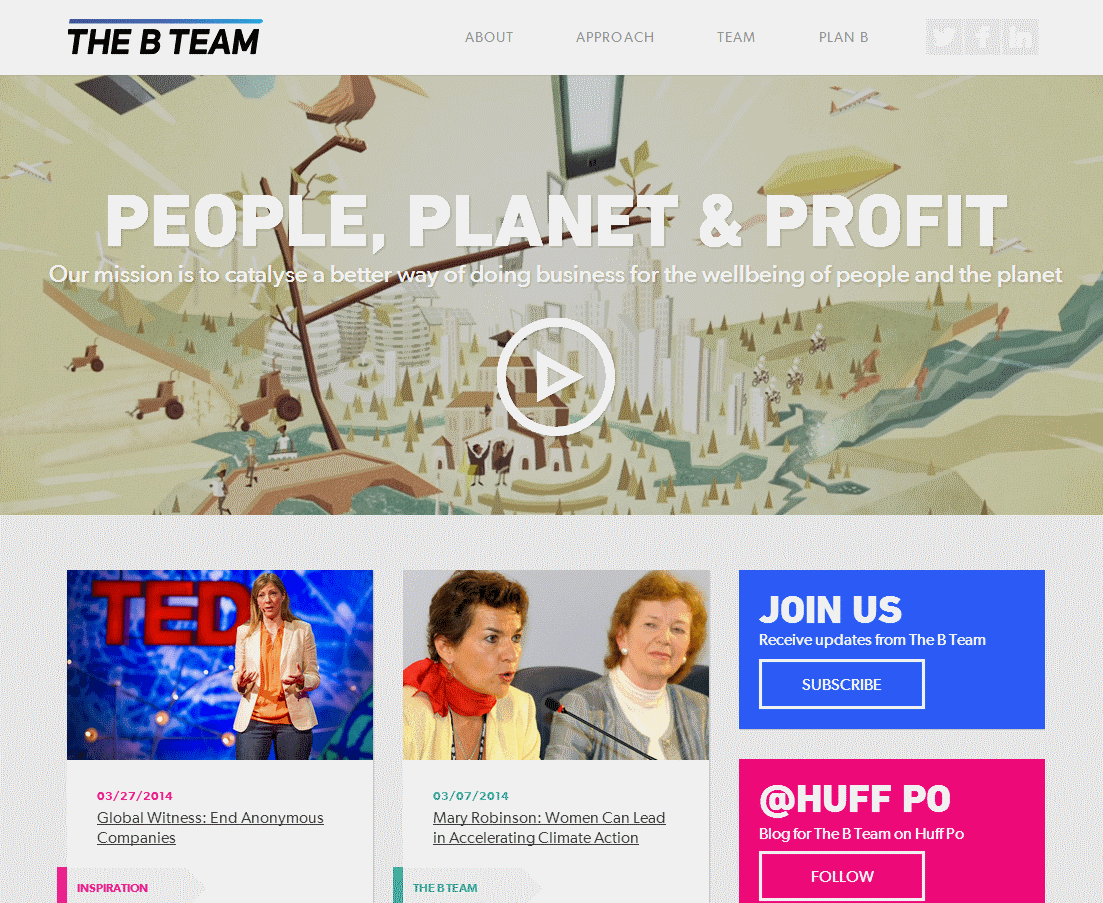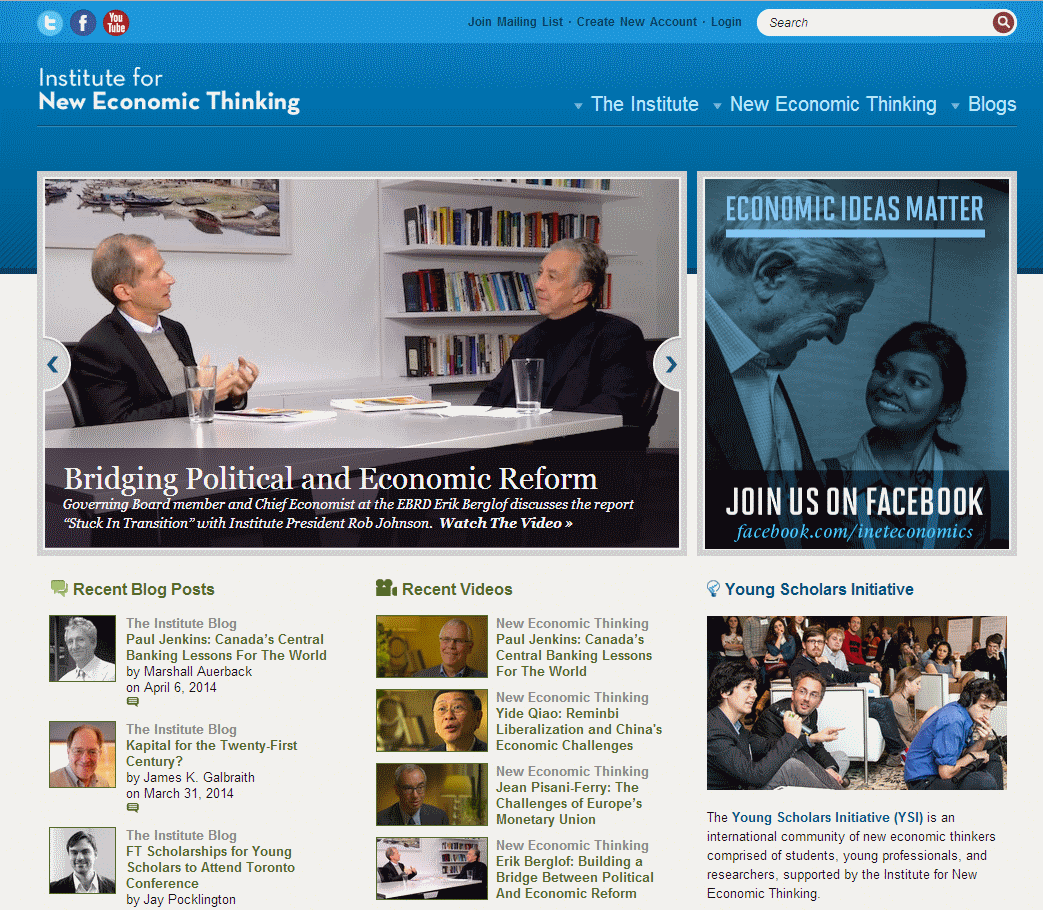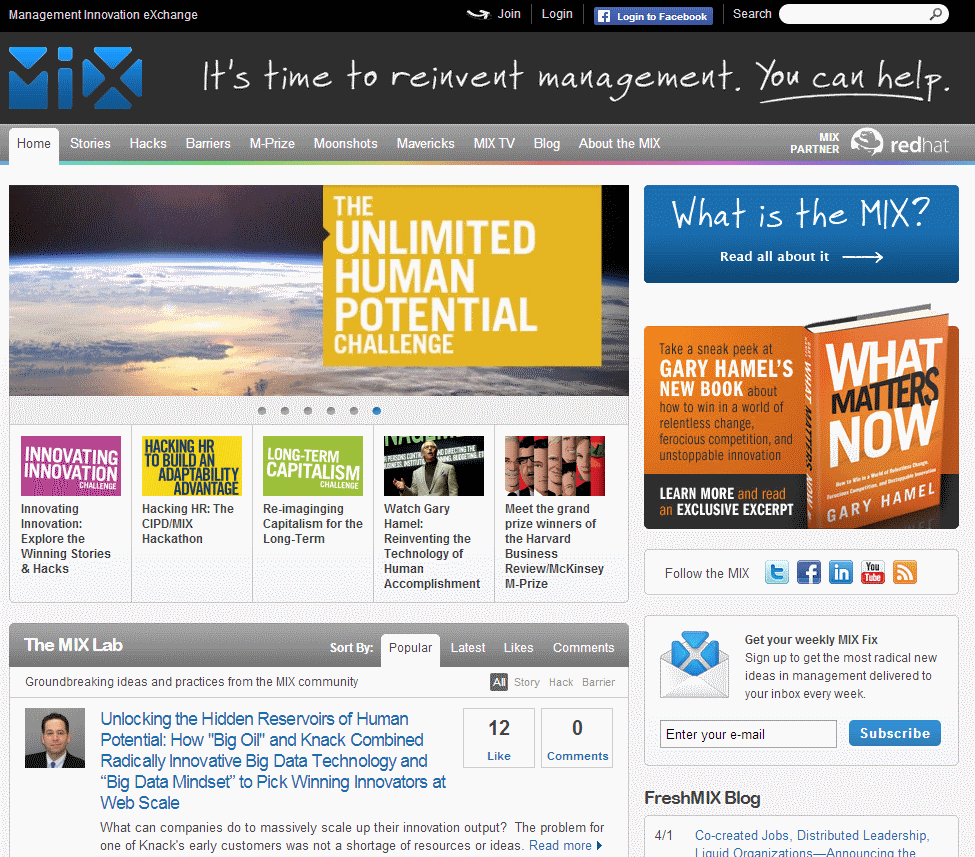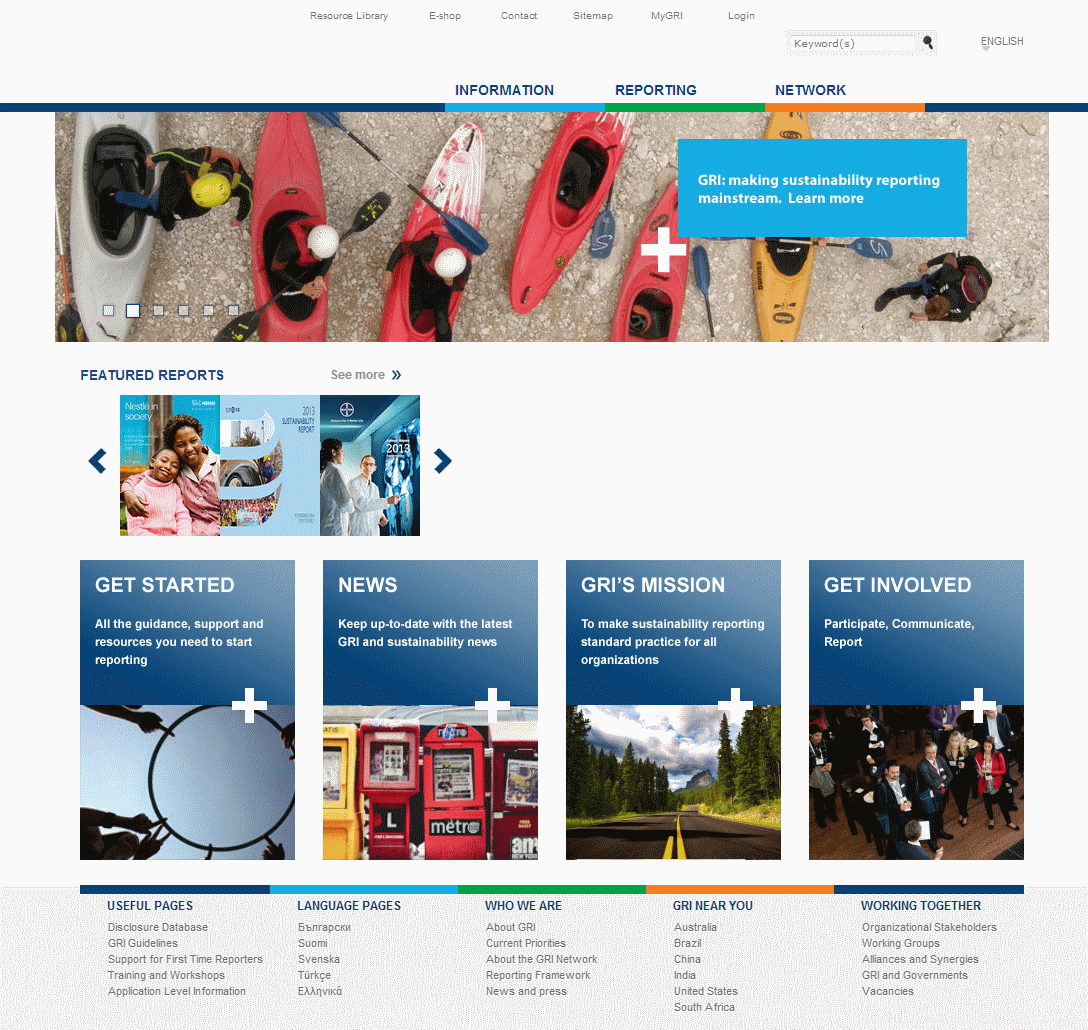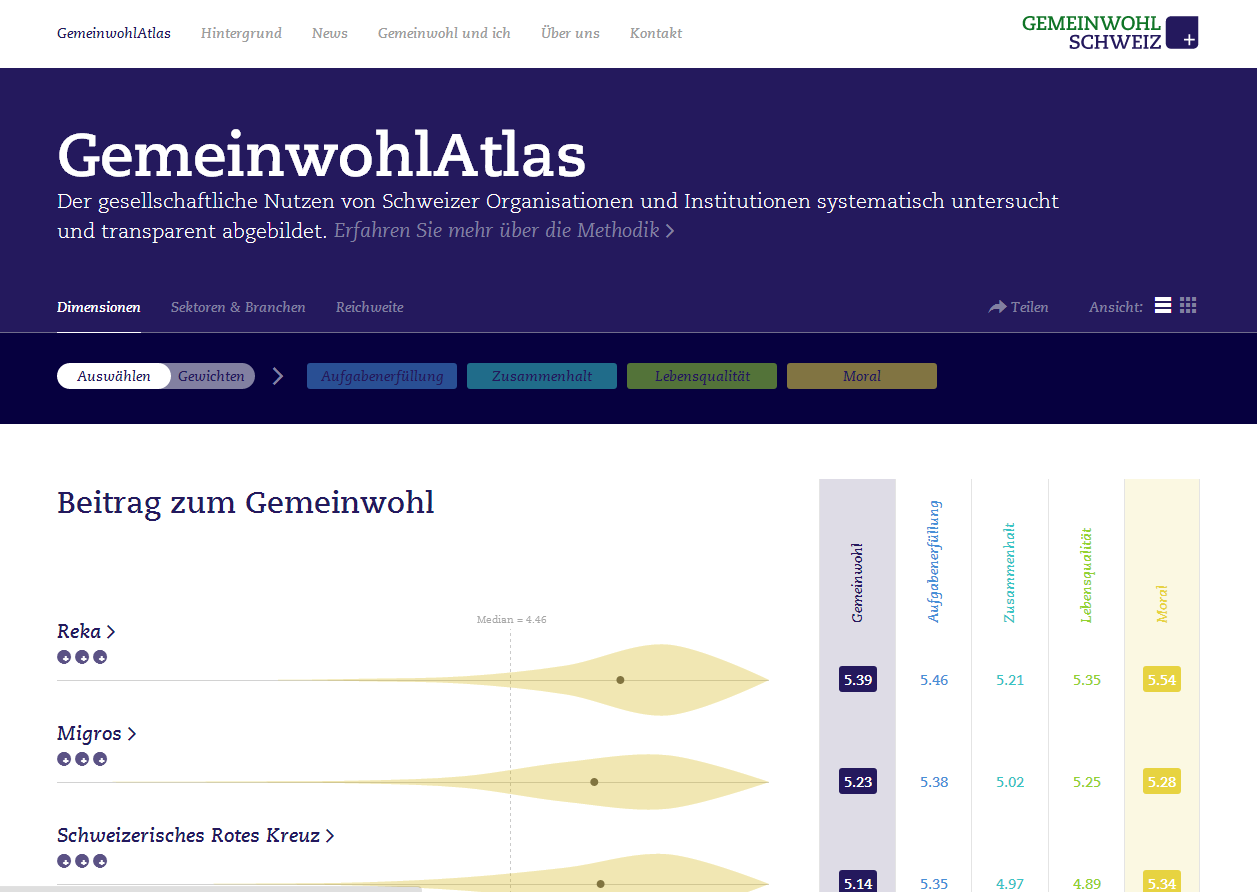Shared Value Initiative
The Shared Value Initiative is a global community of practice committed to driving adoption and implementation of shared value strategies among leading companies, civil society, and government organizations.
Launched by Michael E. Porter, Mark R. Kramer, and FSG at the Clinton Global Initiative (CGI) Annual Meeting in 2012, the Initiative is supported by leading global corporations, nonprofits, and foundations committed to creating shared value between business and society.
One of the main reasons for starting the Shared Value Initiative was laid open in a Harvard Business Review article.
There are now three steps visible:
1st How to Fix Capitalism
How to reinvent capitalism - and unleash a wave of innovation and growth (HBR 2011).
2nd Measuring Shared Value
How to unlock Value by Linking Social and Business Results (2012).
3rd Visualize compound Social and Business Value
How to combine social and business progress in a compound value metric (vector)...
European Framework for Measuring Progress
The need to go beyond GDP to measure people well-being and societal progress is now fully recognised, also at a political level.
The EU FP7 project e-Frame - European Framework for Measuring Progress - aims at fostering the on-going debate on the measurement of well-being and the progress of societies among all relevant stakeholders, developing a European network and supporting National Statistical Institutes' measurement initiatives in this area.
e-Frame will enhance the relevance of well-being measures and analysis for addressing key policy issues and will propose how to develop the future research agenda in this field.
(Was http://eframeproject.eu)
The B Team
Our vision of the future is a world in which the purpose of business is to be a driving force for social, environmental and economic benefit.
OUR MISSION: To catalyse a better way of doing business for the wellbeing of people and the planet.
OUR DECLARATION (short): We, the undersigned, believe that the world is at a critical crossroads.
Global-business leaders need to come together to advance the wellbeing of people and the planet. In fact, we think business has to think this way in order to thrive.
Sir Richard Branson, Guilherme Leal, Ratan Tata, Kathy Calvin, Strive Masiyiwa, Professor Muhammad Yunus, Arianna Huffington, François-Henri Pinault, Jochen Zeitz, Dr. Mo Ibrahim, Paul Polman, Shari Arison, Dr. Ngozi Okonjo-Iweala
go to "Our Declaration"
Institute for New Economic Thinking
It’s time everybody recognized that our 20th century economic thinking is not fit for life as we know it in the 21st century.
The prevailing thinking, that the economy is an idealized system of perfectly rational, optimizing individuals and institutions, who, by trading in markets, bring the economy to a balanced, efficient equilibrium has been rendered obsolete by developments in recent years.
Markets are global. Money moves instantaneously 24/7, and is now a raw material for financial innovations. Regulators are fallible and market participants frequently fall below the standard of being perfectly rational.
Economic thinking has not kept up with these and other developments that now define us, and that fact deeply affects everyone – as we learned in our most recent global financial crisis.
Spurred by the financial crisis and recent developments in the economics field, a far more realistic view of the economy is emerging that takes into account imperfections in individuals, institutions, and information, as well as the existence of complex global networks of interaction, and the dynamism of innovation.
This “new economic thinking” has the potential to profoundly impact society in areas ranging from government policy and financial system reform, to solving climate change, poverty and inequality, and driving sustainable growth in the long run. In other words, new economic thinking can enable a better world for all.
The Institute for New Economic Thinking’s mission is to nurture a global community of next-generation economic leaders, to provoke new economic thinking, and to inspire the economics profession to engage the challenges of the 21st century.
UBS International Center of Economics in Society
It was established in 2012, enabled by a founding donation by UBS, which the bank made on the occasion of its 150th anniversary
The new center of excellence serves two main aims, the first of which is to finance world-class research in economics on all levels, to be conducted at the University's Department of Economics. It thereby supports the department's ambition to further strengthen its position as one of the top economics departments in Europe and to make Zurich one of the best places for research in economics in the world.
Three new chairs examining following themes in an integrated and interdisciplinary manner:
1. the macroeconomic and financial foundations of economics
2. the legal and institutional foundations, and
3. the entrepreneurial, organizational, and management bases of economic life.
Management Innovation eXchange
The Management Innovation eXchange (MIX) is an open innovation project aimed at reinventing management for the 21st century. The premise: while "modern" management is one of humankind's most important inventions, it is now a mature technology that must be reinvented for a new age.
The spur for a revolution in management...
Current management practices emphasize control, discipline and efficiency above all else — and that's a problem. To thrive in the 21st century, organizations must be adaptable, innovative, inspiring and socially accountable. That will require a genuine revolution in management principles and practices.
An online clearinghouse and a virtual laboratory...
The MIX helps to accelerate the pace of management innovation by energizing and organizing the conversation around the most critical challenges facing managers today — and by providing a practical platform where they can document, share and develop their leading-edge ideas and practices.
A stage for management innovators everywhere...
The MIX is designed for all those who are frustrated by the limits of our legacy management practices. It's for all the inspired thinkers and radical doers who believe we can — and must — find alternatives to the bureaucratic and disempowering management practices that still rule most organizations.
INTEGRATED REPORTING < IR >
THE NEED FOR < IR >
We know that reporting influences behaviour. Integrated Reporting (< IR >) provides the framework within which more long-term decisions can be made, unlocking financial capital for investment as well as providing a more holistic picture of how value is created over time. In short, < IR > contributes towards a more financially stable economy and sustainable world.
< IR > promotes a more cohesive and efficient approach to corporate reporting and aims to improve the quality of information available to providers of financial capital to enable a more efficient and productive allocation of capital.
< IR > is needed by business and investors. Businesses need a reporting environment that is conducive to understanding and articulating their strategy, which helps to drive performance internally and attract financial capital for investment. Investors need to understand how the strategy being pursued creates value over time.
THE BENEFITS OF < IR >
Business:
Better articulation of strategy for the business and how its business model is responding to changing needs and expectations in the marketplace
Enabling better dialogue between the business and providers of financial capital
More connected departments, breaking down silos.
Improved internal processes
Lower cost of capital
Investors:
< IR > makes clearer the connections between organization’s strategy, governance, performance and prospects – investors are therefore able to assess more effectively the combined impact of diverse factors
The disclosure of key risks and opportunities as management views them enables investors to assess the short, medium and long term impact
More effective capital allocation decisions leading to better long-term investment returns.
Global Reporting Initiative (GRI)
GRI has pioneered and developed a comprehensive Sustainability Reporting Framework that is widely used around the world.
A sustainability report is a report published by a company or organization about the economic, environmental and social impacts caused by its everyday activities.
A sustainability report also presents the organization's values and governance model, and demonstrates the link between its strategy and its commitment to a sustainable global economy.
GRI's mission is to make sustainability reporting standard practice for all companies and organizations. Its Framework is a reporting system that provides metrics and methods for measuring and reporting sustainability-related impacts and performance.
The Framework – which includes the Reporting Guidelines, Sector Guidance and other resources – enables greater organizational transparency and accountability. This can build stakeholders’ trust in organizations, and lead to many other benefits. Thousands of organizations, of all sizes and sectors, use GRI’s Framework to understand and communicate their sustainability performance.
GRI is an international not-for-profit organization, with a network-based structure. Its activity involves thousands of professionals and organizations from many sectors, constituencies and regions. The Framework is developed collaboratively with their expert input: international working groups, stakeholder engagement, and due process – including Public Comment Periods – help make the Framework suitable and credible for all organizations.
GRI's Secretariat is located in Amsterdam, The Netherlands, and there are GRI Focal Points – regional offices – in Australia, Brazil, China, India, South Africa, and the USA. More than 600 Organizational Stakeholders – core supporters – play a vital part in endorsing GRI's mission.
GRI also enjoys strategic partnerships with the United Nations Environment Programme, the UN Global Compact, the Organisation for Economic Co-operation and Development, the International Organization for Standardization, and others.
The New Club of Paris - The Knowledge Agenda Developer
Mission:
The manifesto of “The New Club of Paris” on the knowledge society and its economic foundations (final version, as having been decided by the general assembly of “The New Club of Paris” on June 28th, 2006)
Our society is undergoing a dramatic transition from the industrial & information age towards a new era of brainpower industries, associated with upheavals in the global structure of the economy and accompanied by far-reaching demographic shifts and a transformation of social systems.
.....
Center for Leadership and Values in Society - HSG University of St. Gallen
Ziel ist die Entwicklung einer Management-Methode zur Beschreibung und Bewertung gesellschaftlicher Wertbeiträge (Public Values) aus dem Kerngeschäft
Im Forschungsprogramm entwickeln wir eine Management-Methode, mit der Organisationen ihren gesellschaftlichen Wertbeitrag beschreiben, bewerten und – soweit möglich – steuern können. Diese Methode baut auf zwei konzeptionellen Bausteinen auf:
In Anlehnung an das Konzept „Embeddedness" (Polany, DiMaggio) verstehen wir Organisationen als vielfältig in die Gesellschaft eingebettet. Organisationen in Wirtschaft, Staat und Bürgergesellschaft stehen deshalb immer im Dienste einer "funktionierenden Gesellschaft" (Peter Drucker) – nicht umgekehrt.
In Anlehnung an die Wertphilosophie (Heyde) und an psychologische Diskurse unterscheiden wir vier Dimensionen, um Wertbeiträge von Organisationen in der Gesellschaft zu beschreiben: neben finanziellen auch sachlich-inhaltliche, moralisch-ethische, sozial-kommunikative und hedonistisch-ästhetische Wertkriterien.
go to gemeinwohl.ch
Institute for Dynamic Economic Analysis
News May 12, 2014
A great chance to move the needle on the reform of economics.
Three purposes to this message: (1) Signal the official launch of IDEAeconomics, its activities and projects, (2) Test the reach of social media, and (3) Make you aware of the great new opportunity for relevance as our chief economist Steve Keen takes over the reins at Kingston University London with the charge of establishing the first truly heterodox economics department anywhere.
IDEA’s chief economist Steve Keen has accepted appointment to head the department of Economics, History and Politics at Kingston University London. Kingston is a university of 22,000+ students (undergraduate and postgraduate), 2,100+ staff and an economics department of 21 faculty. With this appointment and Steve’s charge to form the first truly heterodox economics department in the world comes a huge opportunity for you to make a difference.....
(From World Economic Association)
The Finance Innovation Lab
OUR STORY
The Finance Innovation Lab was born in the Great Hall of the Institute of Chartered Accountants in 2008, in the heart of the city of London to the sound of pouring rain.
It was launched in the wake of the largest financial crisis since the great depression, two weeks before Christmas. Our two very different organisations came together to host a joint event asking the question ‘how can we create a financial system that sustains people and planet?’
An email arrived from WWF. They suggested the event should be hosted in the style of a Native American Pow Wow and despite a somewhat fraught email exchange, on the day participants walked into a room with an eight foot tall totem pole in one corner, an Easter Island head in the other and the sound of pouring rain booming over the AV system.
ICAEW invited their stakeholders; accountants, financiers, the business community. WWF invited theirs; environmental activists, civil society and the responsible investment community. Despite the bizarre spectacle, we had brought together people who don’t normally meet each other, to talk about things the cared deeply about and the energy generated in that room showed us it was a conversation that wanted to continue.
We invited participants to take part in three subsequent scenario planning workshops with Oxford University, looking at the future of finance, momentum built and over time we hosted more and more events, asking participants to call out areas of innovation within the financial system that they believed could bring about large scale. We asked them to cluster around the ideas that inspired them and turned the best ones into projects, securing funding and resources. Many of these failed, but some of them flew. The Natural Capital Coalition, now a multi-million dollar programme looking at business’ impact on the environment and works with stakeholders including big accounting firms and The World Bank amongst others, was born at a Lab event. We convened the CEOs of the peer to peer lending market and the Treasury announced a change in regulation for the industry, at one of our events.
We always took an experimental approach. Trying new things and partnering with a range of people and organisations across the system. Each experiment helped us to decipher where we could add value and we refined our strategy to reflect that. Today the Lab looks quite different. We work across the system with pioneers, advocates and intrepreneurs in mainstream finance. You can read more about our work in the projects section of this website.
Social Progress Imperative
THE IMPERATIVE
Numerous studies have found a high correlation between economic growth and a wide variety of social indicators, yet there is growing awareness that economic measures in financial units alone do not fully capture social progress.
The Social Progress Imperative’s mission is to improve the quality of lives of people around the world, particularly the least well off, by advancing global social progress. The Social Progress Index provides a robust, holistic and innovative measurement tool to guide countries’ choices to enable greater social progress and foster research and knowledge-sharing on the policies and investments that will best achieve that goal. Social progress is defined as the capacity of a society to meet the basic human needs of its citizens, establish the building blocks that allow citizens and communities to enhance and sustain the quality of their lives, and create the conditions for all individuals to reach their full potential.
The Social Progress Index is a tool that we hope will be widely used to inform and influence policies and institutions around the world. The Index is founded on the principle that what we measure guides the choices we make. By measuring the things that really matter to people — their basic needs, their food, shelter and security; their access to healthcare, education, and a healthy environment; their opportunity to improve their live — the Social Progress Index is an attempt to reshape the debate about development.
Here's why and how it works.
go to SPI-Page
Relational Thinking
Our Story
The roots of Relational Thinking go back to 1993 with the publication of The R Factor by Michael Schluter and David John Lee.
In this book, Schluter and Lee argued that Western society was steadily undermining relationships which are the foundations of democracy and the market economy. Good relationships are not simply a desirable extra; they are fundamental to the stability and wellbeing of our societies.
Since then people and organisations around the world have recognised the importance of building healthy and sustainable relationships in bringing about real social change and justice. The Relational Thinking network was set up to support partners worldwide and to campaign for a new and better way of organizing the institutions that make up our political and economic systems.
Today, the organizations that are part of our network help businesses change the way they work to get the best out of their employees, strengthen ties with investors and build trust between stakeholders. We are also actively working with policy makers and academics worldwide to highlight the benefits of good relationships and the pressing need for reform in the way we do business, policy and community life.
As we enter an exciting new phase we are looking forward to building new partnerships, deepening current ties and bringing about change for the common good. We would love for you to join us on this journey.
go to Relational Thinking-Site

